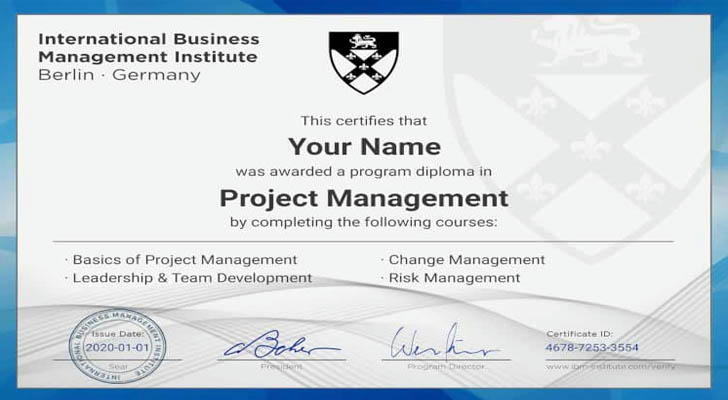Unlocking Success: The Benefits of Earning a Project Management Certification
In today’s fast-paced and competitive job market, having an edge over the competition can make all the difference. For those in the world of business, technology, or even construction, project management is a skill that is in high demand. But what if there was a way to stand out even more? Enter project management certification—a credential that could be the ticket to boosting your career and expanding your professional opportunities. But what exactly does earning a project management certification entail, and how can it benefit you? Let's take a closer look.

What is Project Management Certification?
Project management certification is an official recognition from a professional organization that demonstrates you have the skills, knowledge, and experience necessary to manage projects successfully. Some of the most well-known certifications include:
- Project Management Professional (PMP), offered by the Project Management Institute (PMI)
- Certified Associate in Project Management (CAPM), also from PMI
- PRINCE2 (Projects IN Controlled Environments) certification, popular in Europe and Australia
- Certified ScrumMaster (CSM) for those in Agile environments
Earning a project management certification typically requires passing an exam that tests your knowledge in areas like budgeting, time management, risk management, and team leadership. Certification often requires some hands-on project management experience and may also involve completing a training program.
Why Get a Project Management Certification?
You might be asking, “Do I really need a certification?” While many professionals have successfully managed projects without formal certification, there are several key reasons why obtaining one can set you apart and provide tangible benefits.
Improved Job Prospects: In today’s competitive job market, employers are often looking for individuals with proven expertise. A project management certification helps demonstrate that you have the skills necessary to take on high-stakes projects, making you a more attractive candidate for a job or promotion.
Higher Earning Potential: According to the Project Management Institute (PMI), certified project managers tend to earn higher salaries compared to their non-certified peers. In fact, PMP-certified professionals earn, on average, 20% more than those without certification. The certification is seen as a sign of professionalism and expertise, which many employers are willing to pay for.
Enhanced Skillset: A project management certification program teaches you the best practices, tools, and techniques used by successful project managers. Whether it’s mastering risk management, improving your communication skills, or learning to manage resources more effectively, a certification program will help you grow professionally and personally.
Increased Credibility: Certification provides an objective, third-party validation of your skills. It shows potential employers, colleagues, and clients that you are serious about your profession and are committed to continuous learning. It’s like a stamp of approval that says, “I know what I’m doing, and I’ve invested time and effort into mastering my craft.”
Networking Opportunities: Being certified means joining a community of professionals who have passed the same rigorous exams and have similar goals. Certification programs often come with access to exclusive events, workshops, and networking groups where you can meet other like-minded professionals and expand your career network.
Global Recognition: If you’re someone who dreams of working internationally, project management certifications are recognized and respected worldwide. This global recognition gives you the flexibility to work in diverse industries and geographic locations, increasing your career mobility.

A Real-Life Example: Sarah’s Career Transformation
Let’s take a look at Sarah, a 32-year-old professional who worked as a team lead in a tech startup. Sarah had always been good at organizing projects and making sure deadlines were met, but she felt like she could do more. She knew there was a gap in her knowledge when it came to managing complex, cross-functional teams and navigating larger projects, so she decided to get certified in project management.
Sarah enrolled in a PMP preparation course through an online platform and spent several months preparing for the exam. While it was challenging, she found the process rewarding, as she learned new techniques for managing budgets, handling risk, and communicating with stakeholders. She also appreciated the insights she gained into how successful project managers tackle large-scale challenges.
After passing the PMP exam, Sarah felt more confident in her ability to handle complex projects. Within six months, she was promoted to Project Manager at her company and was entrusted with overseeing the company’s largest product development initiative. Not only did her salary increase, but Sarah found that she was able to approach projects with more clarity, making better decisions and leading her team more effectively.
Sarah’s certification opened doors to higher-profile projects and greater responsibilities within her company. She also discovered that she was now able to apply for positions in other companies that required a PMP certification, significantly expanding her career options. In her case, earning the certification didn’t just elevate her resume—it boosted her confidence and helped her secure a fulfilling career path in project management.

Key Takeaways:
- Career Advancement: Project management certifications can help you move up the career ladder by making you eligible for more senior roles and responsibilities.
- Increased Earnings: Certified project managers typically earn higher salaries than their non-certified counterparts.
- Better Skillset: Project management certification programs teach the latest techniques, tools, and best practices in the field, ensuring you’re equipped to handle complex projects.
- Global Opportunities: Project management certifications like PMP and PRINCE2 are recognized internationally, allowing you to work across borders and industries.
- Networking and Community: Earning a certification opens the door to an exclusive network of professionals, helping you build valuable connections and stay up-to-date on industry trends.
Conclusion: Is a Project Management Certification Right for You?
Whether you’re already working in project management or just starting out, a project management certification can offer a range of benefits, from better job prospects and higher salaries to improved skill sets and professional credibility. As Sarah’s story shows, earning a certification can open up new opportunities and even change the trajectory of your career.
So, if you’re someone who enjoys organizing teams, solving problems, and taking on big challenges, a project management certification could be the perfect way to take your career to the next level. Invest in yourself and unlock a future full of exciting projects and endless possibilities! 🌟
